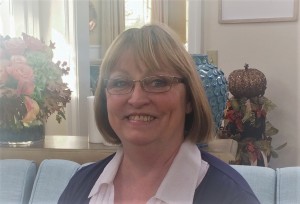Recently I purchased a Time (magazine) Special Edition: Mindfulness, The New Science of Health and Happiness. The front cover boasted a lovely young blond woman; closed-eyed, pouty-lipped, and looking on-so-serene. On the back was a montage of photos ranging from a food journal, a young hip black male sitting in pseudo-meditation posture amidst sidewalk strollers, an ocean-side book-reader, and a walk-in-the-woods gamboler. In big bold print was the theme of the issue: How To Be Mindful – Discover why slowing down and staying present leads to a happier, less stressed life.
As a meditation teacher I am only too happy when people begin exploring their inner dimensions. After all, for centuries the world’s major religions – at least the mystical components of same – have advocated harnessing meditation to search for God and the realization that one’s essential nature is part of God. This quest for understanding is fundamentally the deepest purpose of life and reveals the truth of Being through direct intuitive experience, not intellectual theory or speculative philosophy.
Unfortunately, there’s an existential disconnect between the core purpose of meditation and its modernized cousin, Mindfulness. According to Wikipedia, “Mindfulness is the psychological process of bringing one’s attention to experiences occurring in the present moment, which can be developed through the practice of meditation and other training. The term “mindfulness” is a translation of the Pali term sati, which is a significant element of Buddhist traditions. In Buddhist teachings, mindfulness is utilized to develop self-knowledge and wisdom that gradually lead to what is described as enlightenment or the complete freedom from suffering.” For Buddhists, the method used for this purpose is called Vipassana or Insight meditation. Sincere practitioners are committed to consciously observing experiences in order to deepen insight into reality and attain spiritual liberation. Hindus and other meditative traditions may use different modalities but the endgame is identical, unity with God. The current Mindfulness model has eviscerated a profoundly esoteric practice to become a far lighter tool harnessed to therapeutically manage stress, cultivate emotional resiliency, and foster creativity.
This downgrade has come about for multiple reasons one of which is that the medical and psychological communities find non-theistic Buddhist thought complementary to secular science. Spirituality doesn’t ‘measure up’ in laboratory settings. In addition, there is an ever-increasing, world-wide shift away from traditional religion. Various news sources report this but according to a May, 2016 Huffpost ‘The Blog’ article, “An ongoing spate of recent studies – looking at various countries around the world – all show the same thing: religion is in decline. From Scandinavia to South America, and from Vancouver to Seoul, the world is experiencing an unprecedented wave of secularization. Indeed, as a recent National Geographic report confirms, the world’s newest religion is: No Religion.” In short, God has become fashionably unfashionable. Instead, terms like Consciousness have become favorable replacements because they don’t trigger sensitive ideological trip wires. Another boon for the Mindfulness trend.
Evolving times give rise to necessary change. With greater understanding of the universe comes the need to rethink modes of belief. What was once deemed ‘gospel’ is often seen now as political doctrine crafted by hierarchical systems to wield power over those they were allegedly tasked to serve. I get it; down with misinformation and those who abuse it. That said, disregarding terms like God in favor of ‘Consciousness’ or other neutral language, while temporarily mollifying, doesn’t solve anything. It’s just putting lipstick on a pig, i.e. glamorizing what shouldn’t be. The problem isn’t about God, it’s about our limited understanding. Efforts to stamp out God or related verbiage is not enlightened, it’s ignorant. We strive to reformulate language to avoid being reminded of unpleasant human tendencies. We isolate ancient practices that conveyed transcendent experiences and repurpose them to accommodate mundane values and lives antithetical to realizing a greater existence. And this is done with a hubristic sense of self-satisfaction that revels in its smug smallness.
Clever spiritual synonyms, or the lack thereof, are meant to display freedom from archaic belief systems yet more accurately reveal an astounding absence of inner awareness or perception of higher realities. The term God simply refers to “the supreme or ultimate reality” (Merriam Webster) and is not something riddled with boogeymen or an antiseptic praise hunter sitting in a remote corner of the universe. More, the term implies there is an ultimate and supreme state of being versus lessor ones. Why then, in this world so bent on discovering new, advanced modes of technology, do we find the perennial pursuit of ultimate reality so undeserving of our time and inquiry? Why do we dilute opportunities to tune into higher states by focusing on bland pulpits that venerate the meaningless? Breathe, be in the moment, return to your breath, watch your thoughts, observe your feelings, your food, whatever. REALLY?! Is that the new form of spirituality? What does it actually do for you aside from distracting you from your smart phone, job, or romantic problems for a bit? Does it provide deep insight into the meaning of life or how to attain union with the Ultimate? No. For as much value as there is concentrating the mind and regrouping from sundry distractions, none of that is spiritually significant unless there is an accompanying purposeful transcendent agenda and means to attain it. Why? Because, simply put, we are in the world but not of it. Never have been, never will be. And there is no way one can realize this truth until they turn within in a meaningful way.
The inner world or spiritual domain does exist. However it doesn’t manifest unless one is privy to accessing it correctly. That is the basis for all the spiritual sciences. Yogic and Buddhist systems are perhaps best at having identified the Supreme Goal plus how to attain it. This isn’t a criticism against Judaeo-Christian traditions but an acknowledgement of older spiritual systems that have been refined over time. And, since Truth is One, what they realized can be found in all religions, albeit in less evident ways. Therefore, instead of strip-mining venerable higher sciences to attain better health or emotional equanimity, think about the far greater benefits realized when one follows the path these systems were designed for. Is it not better to grasp the deeper meaning of life and harvest its fruits than to frolic in the fleeting glamor of ignorant superficiality?
God is not a four-letter word. God is the supreme good, the Grand Ultimate. Choosing to not acknowledge this truth doesn’t change it but, rather, retards one’s ability to live life to its fullest. If you haven’t done so, reconsider your relationship with the Almighty. This is not a call to re-engage with faulty doctrine or meaningless rituals. Instead, it is an invitation to broaden your perceptions wisely. Study the lives of saints and mystics who have communed with the Supernal. Examine the quality of their lives; the joy, peace, and love they’ve gained and see if that’s not something worth pursuing. Investigate meditative practices derived from legitimate spiritual systems that have produced bona fide sages, venerable ones with direct experience of God. Follow a path proven valid by those who have used it to attain the Highest. Be a critical consumer but get away from superficiality and re-engage with God. Your version of the Divine may be personal, impersonal, or a mixture of both. It doesn’t matter. What does matter is pursuing a valid inner path because, ultimately, it’s what you’re meant to do. There is no greater fulfillment or enduring accomplishment than reuniting with your true Self. And that is God.











 I’ve taken the ideas that I first wrote about in my book, “Rainbows Over Ruins,” and the “Survivor’s Guide: 12 Tips to Gain Inner Peace” and translated them into a course designed to help you change your life for the better.
I’ve taken the ideas that I first wrote about in my book, “Rainbows Over Ruins,” and the “Survivor’s Guide: 12 Tips to Gain Inner Peace” and translated them into a course designed to help you change your life for the better.